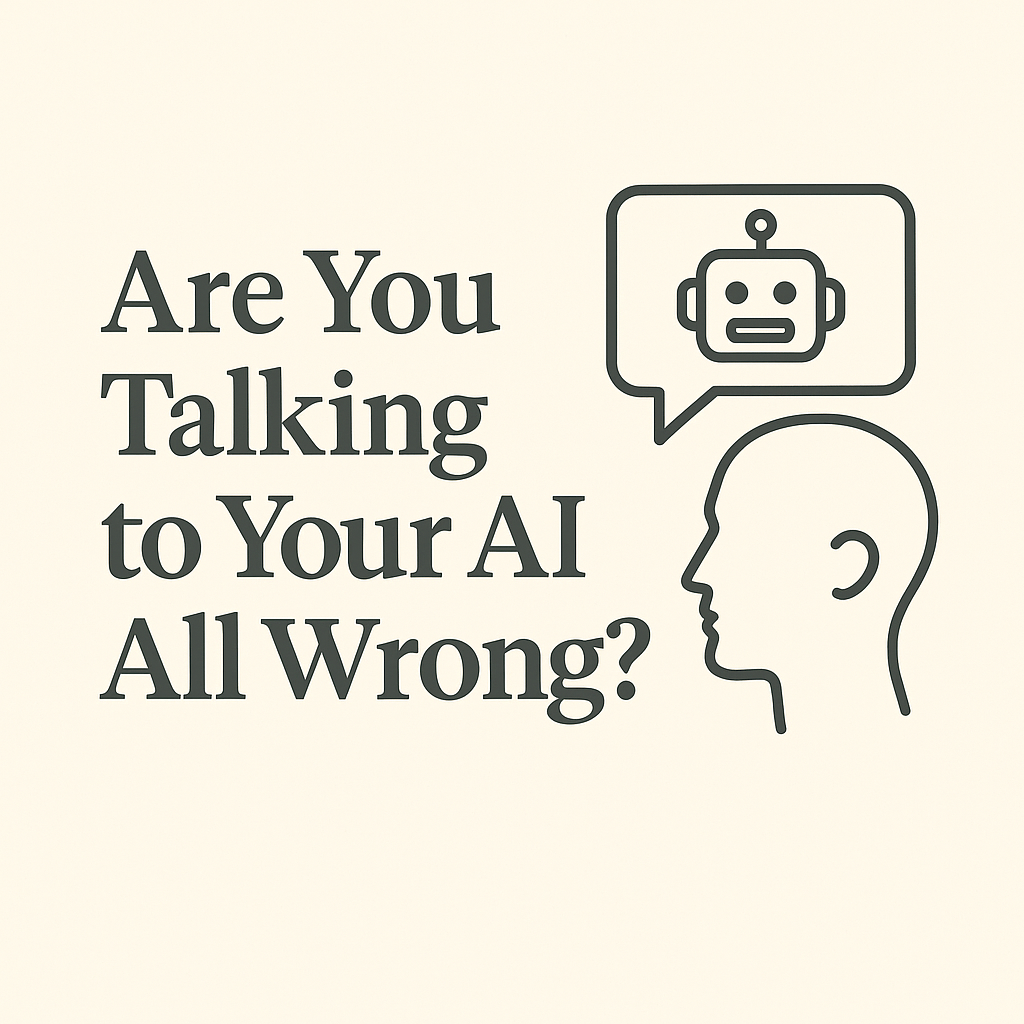We’ve all been there. Staring at a blinking cursor, facing a mountain of data, and wishing for real support to help cut through the noise. In the age of AI, that wish feels closer than ever. Many of us have turned to tools like ChatGPT for a quick assist, only to be met with generic, surface-level answers that are more frustrating than helpful.
What if the problem isn’t the AI, but how we talk to it?
The Accidental Discovery That Changed Everything
A frustrated Reddit user recently cracked the code after 147 failed attempts to get useful output from ChatGPT. In a moment of exasperation, they typed: "Why can't YOU just ASK ME what you need to know?"
That simple, human question sparked what's now known as the "Lyra prompt" - a method that flips the script entirely. Instead of you guessing what the AI needs, you teach it to interview you first. The result? AI that acts less like a search engine and more like that sharp junior analyst you wish you could clone.
Why This Matters for Your Practice
As valuation professionals, we live in the details. Context is everything. A SaaS company's revenue recognition isn't the same as a manufacturing firm's inventory turnover, and any analysis worth your time needs to reflect that nuance. Traditional AI prompting fails us because it forces us to anticipate every piece of context upfront. The Lyra approach does something smarter: it makes the AI responsible for gathering the right information before attempting an answer.
Three Ways to Apply This in Your Work Today
1. Intelligent Due Diligence Partners
Instead of: "Analyze these financial statements."
Try: "Act as a senior valuation analyst reviewing a private equity target. I'm sharing three years of financials for a B2B SaaS company. Before you begin your analysis, ask me the five most critical questions about this company's business model that would impact your valuation approach."
The AI will probe into revenue recognition, customer concentration, churn rates, and growth sustainability—exactly what you'd want a sharp analyst to focus on.
2. Strategic Report Development
Instead of: "Write an industry analysis section."
Try: "You're drafting the industry analysis for a craft brewery valuation in the Pacific Northwest. First, outline the key subsections you'd expect in a comprehensive industry analysis, then ask me which specific market dynamics or competitive factors I want you to emphasize."
This ensures your report structure matches your strategic priorities, not some generic template.
3. Assumption Stress-Testing
Instead of: "Check my valuation model."
Try: "Take the role of a skeptical buyer's advisor. I'll present my key valuation assumptions for this target. Your job is to challenge each assumption systematically, asking the tough questions a sophisticated buyer would raise."
Now you have a sparring partner that helps you anticipate objections before they arise in negotiations.
The Professional Reality Check
Let me be direct about something: AI is a powerful tool, but it's not magic, and it's certainly not infallible.
Never compromise confidentiality. Treat every AI interaction as potentially public. Client data stays protected, period.
Verify everything. AI models are designed to sound convincing, not to be accurate. They will confidently present fictional market data or impossible financial ratios. Your expertise remains the final arbiter.
Remember what can't be replaced. AI doesn't understand the weight of a handshake, the significance of management's body language, or the strategic implications of a delayed product launch. Your judgment, experience, and professional intuition remain irreplaceable.
What This Means for Your Future
The professionals who thrive in the next decade won't be those who resist AI. They'll be those who learn to direct it with precision. Think of it as developing a new core competency, as fundamental as mastering Excel once was.
The mundane work - data compilation, initial research, first-draft analysis - is increasingly automatable (in fact, at Ranger Docs, we're building agentic agents to do all of that. Reach out if you'd like to learn more.). Your value is shifting toward strategic insight, nuanced judgment, and the ability to ask the right questions at the right time.
Your Next Step
The beauty of the Lyra approach is its simplicity. You don't need new software or special training. You just need to start conversations differently.
Pick one routine task from your current workflow - maybe it's initial market research or competitive analysis. Instead of telling AI what to do, try teaching it to interview you first. See how the quality of output changes when context comes before conclusions.
The landscape is evolving rapidly, and we're all navigating this transition together. Whether our firm's solutions align with your needs or not, I'm committed to helping our profession adapt thoughtfully and successfully.
I'd love to hear about your experiences. What's working? What challenges are you facing? The collective wisdom of our profession will guide us through this transformation. Let's share it.
